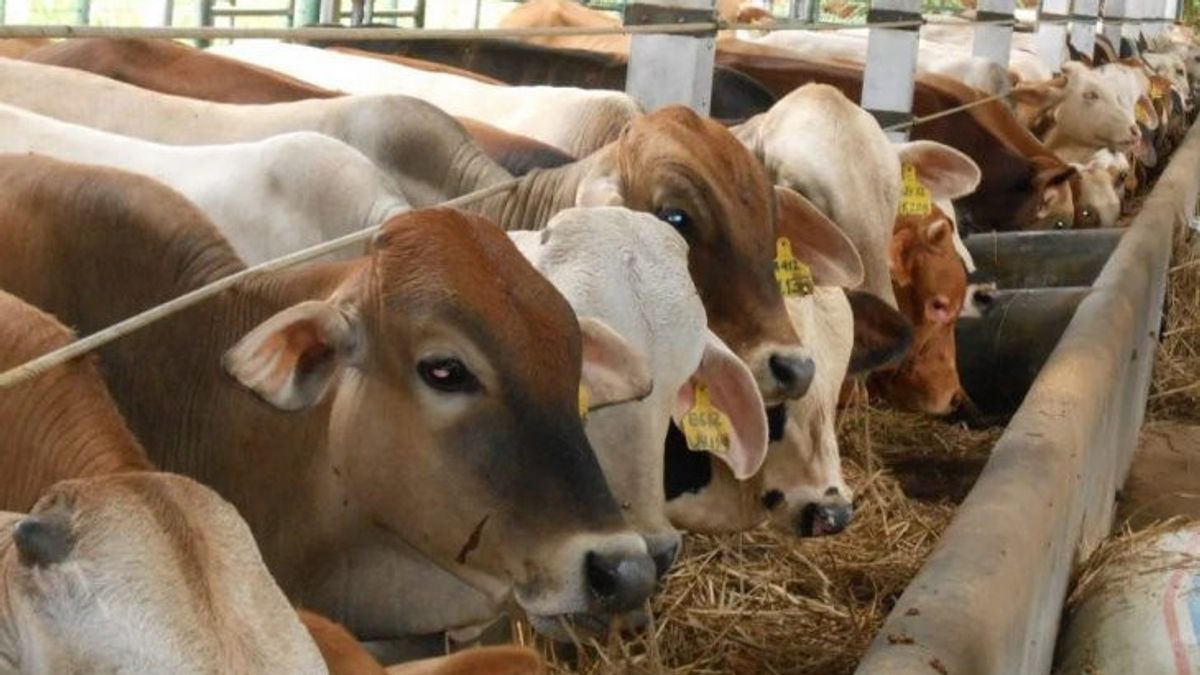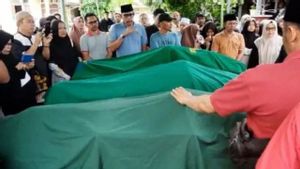PROBOLINGGO - The Livestock and Animal Health Service (DPKH) of Probolinggo Regency revealed that livestock exposed to foot and mouth disease (PMK) are safe for consumption on condition that they are slaughtered at the Slaughterhouse (RPH).
The Head of DPKH Probolinggo Yahyadi appealed to the public not to panic excessively in responding to PMK. He added that so far, PMK has only been transmitted to other animals.
"There is no need to panic and be nervous, livestock with mouth and nail disease are still safe for consumption if slaughtered at the Slaughterhouse (RPH). Moreover, FMD cannot be transmitted to humans because it is not a zoonosis," he said in Probolinggo, East Java, Wednesday, May 11. .
He said that his party ensured that the livestock meat affected by mouth and nail disease was safe for public consumption as long as it was slaughtered at the RPH because there was a team of doctors who would check the health of the slaughtered cattle.
"Slaughtering of animals, especially those affected by FMD must be carried out at the RPH provided that ante mortem and post mortem examinations are carried out within 24 hours," he said quoting Antara.
According to him, the bones and the main lymph nodes will be separated, but before the bone and lymph node separation, the carcasses are withered in a cooler with a maximum temperature of +2 degrees for 24 hours and the Ph value of the meat in the longisimus dorsi muscle is below 6.0.
He asked the community farmers to immediately report to DPKH or the regional coordinator if they found cases in cattle, goats, sheep, buffalo or pigs with clinical symptoms, namely signs of high fever, hypersalivation and foaming, blisters on the mouth and tongue, sores on the legs. even to the point of loose nails, not wanting to eat, limping, shaking, rapid breathing and very fast transmission.
"Initial treatment if you find the case is symptomatic therapy using antibiotics, analgesics and vitamins, then giving soft feed such as comboran and grass cut into small pieces," he said.
In addition, he continued, the feet of injured animals must be sprayed with 4 percent formalin every morning and evening, so that livestock sales are not carried out when the animal is sick and restrict outsiders from entering the cage, and do not introduce new livestock and disinfect the cage.
With the PMK, he continued, the efforts that had been made by DPKH were coordinating with the East Java Animal Husbandry Service, Center for Veterinary Farma and UPT Animal Health Laboratory of Malang to take samples to confirm disease diagnoses in determining steps for handling suspected PMK events.
In addition, DPKH performs symptomatic treatment (antibiotics, analgesics and vitamins) on cattle that have contracted the disease and conducts IEC (Communication, Education and Information) to cattle owners about FMD to prevent the spread of disease and to prevent panic selling.
"We have also made an early warning circular to the Regional Coordinator/Sub-District Coordinator of the Livestock and Animal Health Service (copy of the Camat) regarding the potential spread of PMK disease," he said.
The English, Chinese, Japanese, Arabic, and French versions are automatically generated by the AI. So there may still be inaccuracies in translating, please always see Indonesian as our main language. (system supported by DigitalSiber.id)








